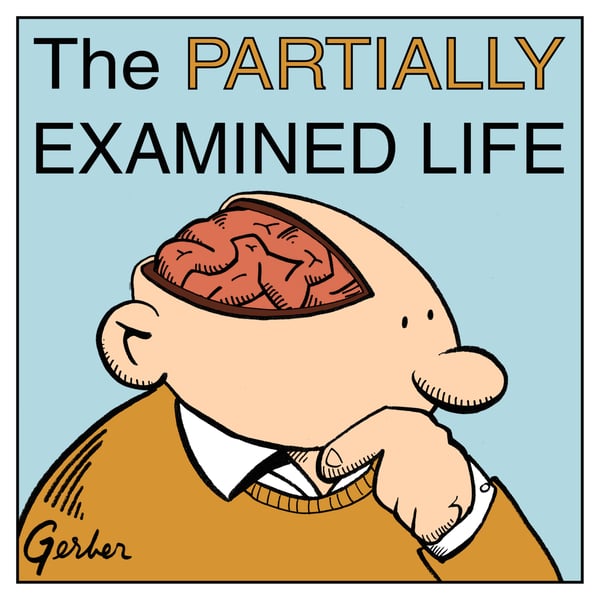Ep. 280: Imre Lakatos on Scientific Progress (Part One)
The Partially Examined Life Philosophy Podcast
Mark Linsenmayer
4.6 • 2.3K Ratings
🗓️ 25 October 2021
⏱️ 52 minutes
🧾️ Download transcript
Summary
On "Falsification and the Methodology of Scientific Research Programmes" (1970).
In what way is scientific progress rational? Lakatos splits the difference between Popper and Kuhn to argue that some scientific research programs are more progressive than others, meaning that they make dramatic, unexpected predictions.
Part two of this episode is only going to be available to you if you sign up at partiallyexaminedlife.com/support or via Apple Podcasts. Get it now or listen to a preview.
Transcript
Click on a timestamp to play from that location
| 0:00.0 | We were listening to the Partial Exam in Life, a podcast by some guys who at one point |
| 0:11.1 | sat on doing philosophy for living, but then thought better of it. |
| 0:14.3 | Our question for episode 280 is something like how to science make progress, and we read |
| 0:19.2 | Emir Lakatosh's, Falsification and the Methodology of Scientific Research Programs from 1970. |
| 0:24.9 | For more information please visit partiallyexaminedlife.com. |
| 0:29.0 | This is Mark Linton Meyer, true by definition. |
| 0:31.7 | This is Seth Paskin, never in danger of being falsified by a fact in Austin, Texas. |
| 0:37.4 | This is Wes Owen, neither confirming nor denying that I am in Cambridge, Massachusetts. |
| 0:42.4 | This is Dylan Casey, watching Minerva's owl gliding along the Wallamette under dusk |
| 0:47.2 | in Portland, Oregon. |
| 0:48.8 | That's fancy. |
| 0:51.3 | You guys probably missed it if you didn't read all the way to the end. |
| 0:54.6 | He says, I hope I've shown all these theories of instant rationality and instant learning |
| 0:58.9 | failed. |
| 0:59.9 | The case studies in this section show that rationality works much slower than most people |
| 1:03.6 | tend to think and even then fallowably. |
| 1:05.8 | Minerva's owl flies at dusk. |
| 1:08.3 | I did read that. |
| 1:09.3 | I just didn't read the appendix. |
| 1:10.5 | By that time I was kind of done with this. |
| 1:15.0 | So we haven't done our philosophy of science sequence in a while. |
| 1:17.6 | I mean, we did like bacon terribly long ago, but this is a direct follow up from our Karl |
... |
Please login to see the full transcript.
Disclaimer: The podcast and artwork embedded on this page are from Mark Linsenmayer, and are the property of its owner and not affiliated with or endorsed by Tapesearch.
Generated transcripts are the property of Mark Linsenmayer and are distributed freely under the Fair Use doctrine. Transcripts generated by Tapesearch are not guaranteed to be accurate.
Copyright © Tapesearch 2025.

